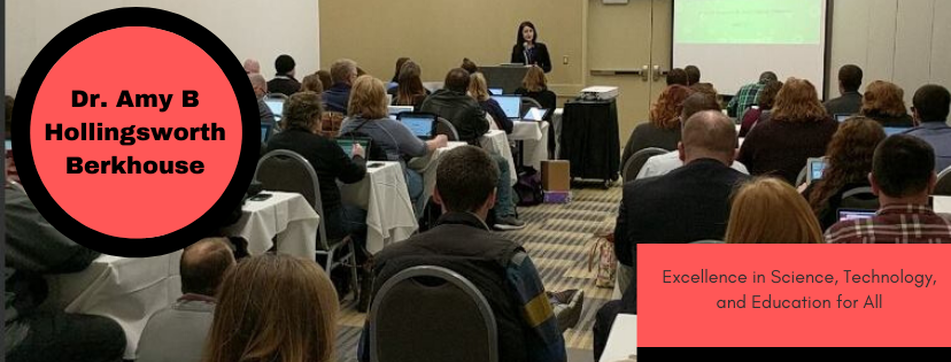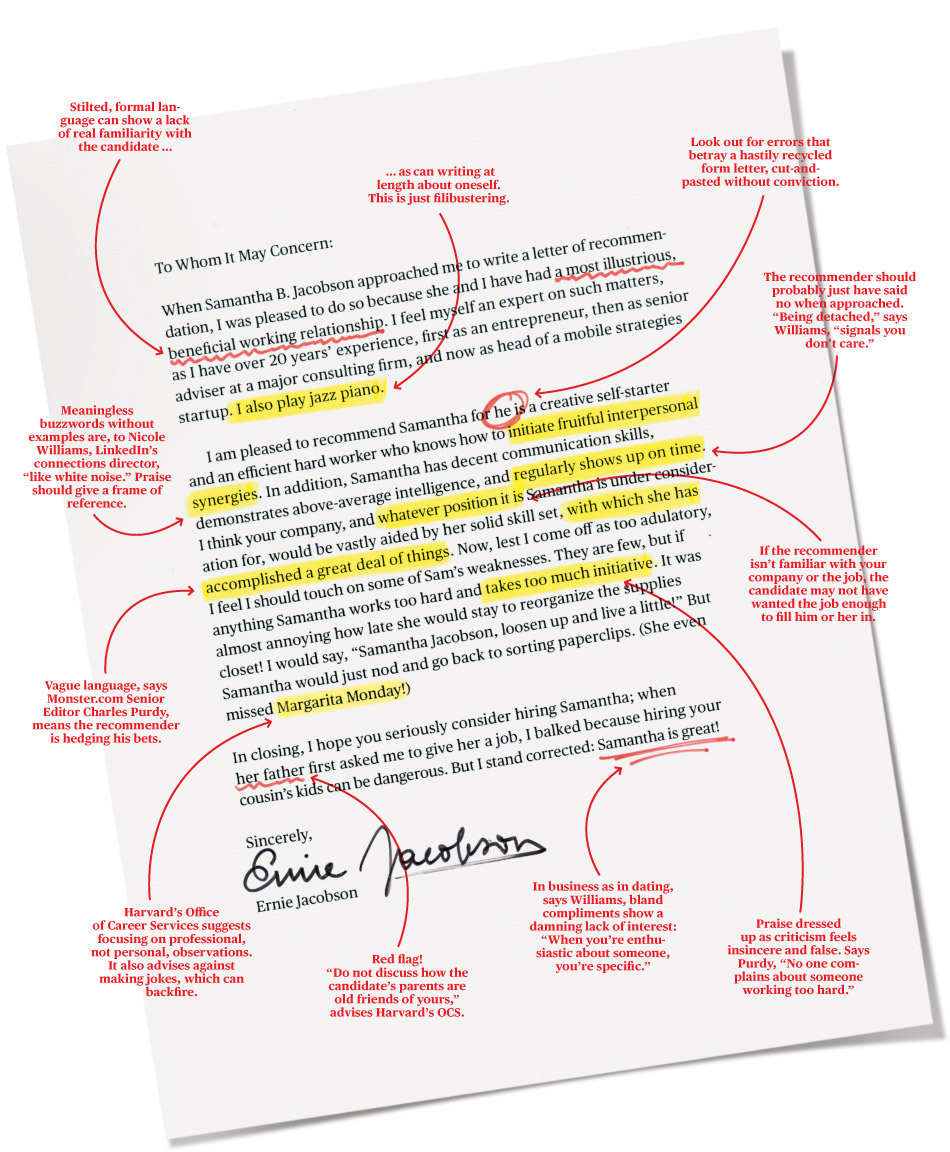The first of the photos are from Kerrville. My son and I exploring, with his sister and dad.
|
I spent the last week in my favorite place on earth... South Texas! I know some people think it's sandy and hot and flat, but that is part of its charm. We also spent some time in Kerrville, which was new and a whole different type of pretty. The first of the photos are from Kerrville. My son and I exploring, with his sister and dad. We did some fishing at this beautiful lake. It was amazing.
0 Comments
In this article today on Forbes, "The Future Of Wearable Tech Isn't Geeky Google Glass," the author argued that things like smart watches or Google Glass will not be popular because they are things that not all people wear. Smartphones have taken the place of watches. Not all people need glasses, so why would a person wear Google Glass? There are some "bling flashers," think of the Fitbit wearer, whose flashing wristband displays their progress on step goals for the day. What the wearable tech folks need to focus on is increasing the status of the user, for using the device well. Once wearable technology makes you MORE social, and awards you for doing something good for yourself (like studying), good for the population (having smart citizens), and doing something good for the campus (have students engaged, prepared, and behaving in a productive manner) THEN it will catch on.
My son and I are in Texas (yeehaw!!!) this week to visit friends. We are staying at my kiddo's dad's house on a beautiful ranch. It's magnificent and gorgeous - all the white rock and hills and formations. Truly beautiful. When we come back to the house after long days of exploring, I want to just relax. That's where the "problem" lies. My ex and I have very different perceptions of what is relaxing. Let me set the stage: My ex grew up in poverty. Very nice people, but very poor. Five kids and two parents in a two bedroom house. Can you imagine all the noise? Dogs barking, TVs, kids screaming and playing. My ex grew up around a ton of noise. Therefore, as we sit here now, there are three TVs on in the house, there is music coming from a video on the laptop, my son is playing Netflix on the iPad, and I am hiding in the back bathroom. I have the fan on, to drown out the sounds. I feel like I'm having a nervous breakdown. I'm actually shaking and grinding my teeth. I grew up in a quiet household. The TV had a padlock on it, because my mom thought TV rotted your brain. My brother and I were avid readers. We would sit in the bathtub and read for hours. We would lay in our beds, under the covers, and read until we fell asleep at night. I used to spend hours a day in the woods, after school, silently building forts or enjoying nature. I need quiet. My ex needs noise. I don't know how to get away from all this yapping and shrieking and screaming and chaos. I love to go to work, where I can hide in silence and read alone. It's hard for me, because I get so anxious and tend to freak out and be mean after ALL THIS NOISE makes me crazy. I tell both my ex and my son to BE QUIET PLEASE!!! At my house, I can control it. As much as a single mom of a six year old can control it. Why can't everyone just be silent? I know I'm being a bitch, but respecting my need for silence is not too much to ask. At least for an hour, while I try to nap or relax, can everyone shut the frock up? In a long discussion about “Fluff Majors,” the conversation points back to “Why go to college?” or “Should everyone go to college?” Another question, “Whose job is it to push students to take difficult or challenging courses?” The Chronicle of Higher Education touched on a sector of higher education that keeps students poor – for-profit institutions. What would happen if we shut down all the for-profit institutions tomorrow? Vocational education has been taken out of the high school curriculum, and snatched up by for-profit institutions. And it’s a HUGE money maker.
“Mr. Longanecker’s takeaway from the study, which he reviewed in advance of its release: "Don’t wish for these to go away," he said of for-profit colleges, where a high proportion of the students are women, minorities, and low-income. "A lot fewer students would have access to higher education, and we know which students would be shut out." I remember back to my days at Norton as a high schooler in the 1990's. There were four real “routes” you could take in high school. You could be in advanced placement, taking really challenging classes, which prepared you for college. You could take “college prep” classes that were not as hard, but still prepared you for college. You could take “the normal classes” which were core, basic classes that everyone took. Or you could take “vocational classes,” which prepared you for a trade – being a secretary, a beautician, a carpenter, a welder, a med tech, and others (that’s all the ones I remember). I took mainly advanced and college prep courses. I don’t know at what point vocational classes were phased out, and everyone took either basic, college prep, or advanced courses. I’d imagine it has to do with No Child Left Behind. Every student was prepared to go to college, and when you graduated from high school, you either went to college, took that vocational training we used to be offered in high school, or you just quit your schooling there. Not pointing fingers at any political persuasions, but you can see how this added to the high school, college, and vocational teacher workforce. Kept students in school longer. Kept them out of the workforce. Kept more teachers employed, but in new institutions. So, from what I’d imagine, vocational programs are never going to return to high schools. For-profit schools would close down, and high schools don’t have the money to re-create those programs. Letting poor students use federal money at for-profit institutions lets that group of students get the vocational education they used to get in high school (for “free”). Where the taxpayer used to pay for K-12 education for all children, they now pay for at least K-14, and many times K-16 (a four year education at any college or university). In thinking about the political aspects of this fight – how much education should Americans pay for? K-12, K-14, K-16, or K-16 for each and every person who wants it? There are a lot of ramifications that reach every part of America – the workforce, the educational system, taxes, and probably every sector I haven’t mentioned here. Now, I admit to being a fiscal conservative. I’d like to see each student, once graduating from high school, be able to make their own choices about where to go to school, if they go to school, and what kind of investment they’d like to make in that education. Choose wisely, choose only what you can afford on your own, and take fiscal stake in that choice. But, there is a whole other segment out there of fiscal liberals, who’d like to see education completely free to all, at every level (up to grad school, including grad school, and any refresher courses). Let students try things, fail, try another course or major, and have the opportunity to take anything for “free.” (taxpayer subsidized) The answer is somewhere in the middle. Somewhere between “Pay for it all yourself,” and “We’ll invest in you, no matter what.” Such a complicated web of motivations, finances, politics, and choices. What is a degree worth? What are degreed people worth? What degrees are worthy? Who chooses what degree a student should pursue? Who decides where a student gets their degree from? Who decides what degrees are offered, and where? Everyone has an opinion on these questions – who eventually gets to decide who is right? The voters? The teachers? The students? The – ***GASP*** – politicians??? Those weasely jerks who are influenced by money from for-profit institutions, unions, companies, foreign countries, and rich people… Scary, right? Let me preface this article by saying I am not knocking anyone's choice of major. I know there are majors that are seriously fulfilling, but not well paying. There are a lot of choices that go into choosing a major. You may have chosen one of the majors listed in my article. Heck, I did. I'm a teacher. What I want to discuss are the implications of choosing a low paying job (or not knowing that the job was low-paying before you started college).
The phrase "Underwater basket weaving" is an idiom referring (in a negative way) to supposedly easy and/or worthless college or university courses, and used generally to refer to a perceived decline in educational standards. This term emerged in the 1950's in a letter to the LA Times about the lack of expectations for football players to take difficult courses. It is now used for not just individual courses, but entire "fluff majors." A "Fluff Major" is when a student picks a course of study that is easy, so that they do not have to take a job or be challenged by the "hardness" of the courses. I actually wrote about this phenomenon a few years ago in "Are they up for the challenge? Community College Students' Perceptions of Challenging Classes." What we found (essentially) is that students wanted easy classes if the class was not part of their major (gen ed), and "hard but not too hard" if the class was for their major. What kind of courses would be included in the "hard, but not too hard" category? For many students, this means (unfortunately) the humanities - subjects that study human culture using methods that are primarily critical, speculative, or historical. The humanities include ancient and modern languages, literature, philosophy, religion, and visual and performing arts such as music and theater. The humanities, which are also sometimes regarded as social sciences, include history, anthropology, area studies, communication studies, cultural studies, law and linguistics. What common factors underlie the humanities? Subjectivity, and lack of math. Note how the social sciences are different than the natural sciences. The natural sciences are empirical - (the record of one's direct observations or experiences) can be analyzed quantitatively or qualitatively. They involve scientific experimentation, and testing. The first people who took “fluff majors” may have been men in the 1950's looking to avoid the draft. Colleges and universities very quickly set up “easy majors” to accommodate the influx of men looking to avoid going to war. These men might not have entered college otherwise. Setting up a dance program, an acting program, or a writing program is inexpensive for the school. Think about what it takes to offer a writing program, versus what it takes to set up an engineering program (hint – it probably differs by $500,000 or more). “Fluff majors” have persisted up to today, as there is federal money available (sometimes called “free money for college”) for low-income students to go to college after high school, rather than entering the workforce. “Free money” or easy students loans are attractive options for potential students – if your choice is to take a Walmart or fast food job to support your family, or take $30,000 a year to go to school, which would you choose? Believing that going to college is a way to get an advantage in life – and that is how college is sold to students, as an investment in their future – in that after graduation, they will be able to get a much better job than a low-skilled Walmart job. But if you know that you had trouble with math or science in high school, or believe that these are “the hard majors,” (or any of the other myths, like “women can’t be scientists,” or “women are bad at math” or “African Americans don’t do science”) what do you take? A major that does not involve math - hence, the fluff major, which is "hard, but not too hard." These so called “laid back degrees” are often appealing. Many times, the jobs that accompany these “easy majors” are desirable – becoming a teacher or a social worker is a noble and a “help people” profession. (Note to all – I am a teacher) Also, these potential college students have experience with these professions – everyone knows a teacher. Students know counselors, social workers, nurses, psychologists, home health aides, EMTs, police officers, or computer support technicians. Students understand these jobs, know people who do these jobs, and want to help others. Unfortunately, these are often the lowest paid career options, and options that lead to a paycheck to paycheck lifestyle. Becoming a dancer, a writer, a musician, or an actor may entice the students’ dreams of becoming famous, or making it big. What they don’t realize is the likelihood of "making it big" is small, and that if they don’t make it big, they may end up working at Starbucks, with student loans to pay back, anyways. Part of the problem is that the highest paid career options are not the ones that low-income, first generation students are familiar with. A petroleum engineer can make $160,000 a year – and how many of those people do you know? I do not personally know one petroleum engineer. The next highest paid is an actuarial mathematician. I’ve never even heard of that job (and I work at a university!!!)! Here are the top 15 highest-paid majors, from Business Insider – 1. Petroleum Engineering Staring median salary: $103,000 Mid-career median salary: $160,000 2. Actuarial Mathematics: Starting median salary: $58,700 Mid-career median salary: $120,0000 3. Nuclear Engineering Starting median salary: $67,600 Mid-career median salary: $117,000 4. Chemical Engineering Starting median salary: $68,200 Mid-career median salary: $115,000 5. Aerospace Engineering Starting median salary: $62,800 Mid-career median salary: $109,000 6. Electrical Engineering Starting median salary: $64,300 Mid-career median salary: $106,000 7. Computer Engineering Starting median salary: $65,300 Mid-career median salary: $106,000 8. Computer Science Starting median salary: $59,800 Mid-career median salary: $102,000 9. Physics Starting median salary: $53,100 Mid-career median salary: $101,000 10. Mechanical Engineering Starting median salary: $60,900 Mid-career median salary: $99,700 11. Materials Science and Engineering Starting median salary: $62,700 Mid-career median salary: $99,500 12. Software Engineering Starting median salary: $60,500 Mid-career median salary: $99,300 13. Statistics Starting median salary: $52,500 Mid-career median salary: $98,900 14. Government Starting median salary: $43,200 Mid-career median salary: $97,100 15. Economics Starting median salary: $50,100 Mid-career median salary: $96,700 Note that 9 of the 15 positions are engineers. If you are living in a low-income neighborhood, how many of your friends or neighbors will be engineers? Also note that most of these involve math-heavy courses. Math is something that terrifies or befuddles many students. That one barrier – believing math is too hard, or that you can’t do math, or that math isn't fun or rewarding – will keep these students near the bottom of the payscale. What is the answer to this problem? It seems like a self-perpetuating cycle – students who are low income hate math, and may not have the resources to spend on education, pick “fluff majors,” “easy majors,” or “laid back majors.” After they get the degree, they either cannot find a job, or are forced to take a low-paying job that keeps them living paycheck to paycheck. Students who have college educated parents, who are already wealthy, or already in good schools, and who have the resources to spend on education pick “hard majors,” know people who are employed in the hard majors, and go on to get a hard degree, and remain at the top of the payscale. Again, I don’t have the answer to this problem. How do you convince a person not to take a fluff major? Do we just let the students decide? Growing up, as a Christian, I was often told, "Do unto others, as you'd have done unto you." I think this teacher forgot about The Golden Rule.... This story, released today, made me so angry at this school district. NEW ORLEANS (AP) — Officials in a western Louisiana school system and the American Civil Liberties union have settled a lawsuit sparked by the treatment of a Buddhist sixth-grader whose parents say he was harassed at a school where officials routinely pushed Christian beliefs. It doesn't matter where you teach, what city or state, teachers have a mandate to treat each child with respect. From further investigation on my part: The student, known as C.C., was asked by sixth-grade teacher Rita Roark to answer the following question on a test: “ISN’T IT AMAZING WHAT THE _____________ HAS MADE!!!!!!!!!!!!!!!!!!!!!!!!!!!!!!!!” When C.C. failed to respond “Lord,” Roark responded “you’re stupid if you don’t believe in God.” She also frequently denigrated his Buddhist faith, as well as the Hindu faith, referring to both as “stupid.” This is where the story becomes personal for me. Roark is a science teacher. I am a science teacher. Roark is a Christian. I am a Christian. Roark used her faith to bully this student, and that makes me horrified. I am further shocked at the school administration’s decision to defend her behavior. People who should know better, SHOULD KNOW BETTER!!! Every single educator, at every level of the school district, broke the law. How is this possible? In the comments sections of some of these articles, commenters say, "Well, this is Louisiana, after all," or "You see this type of things in isolated, bible-thumping areas." There is no excuse for breaking the law. Period. Several things bother me. First, that a teacher could make it through their teacher education program, and not have been educated about the separation of church and state is abhorrent. The school clearly violated “the Free Exercise and Establishment Clause of the First Amendment.” There is no excuse for forcing one’s religious beliefs upon another, especially from a position of power. Students may feel uncomfortable challenging their teachers – the teachers who are supposed to be there to give them, care for them, nurture them, and not harm them – that what they are saying is hurting them. For a student to repeatedly have his religion mocked by the entire school district is hateful and disgusting. That is detestable behavior by a “Christian.” (which I place in quotes, because Christians are not taught to treat others that way, in general) Second, that this is a science teacher, demonstrates that this teacher doesn’t understand science. In this article, it states that “Among the defendants in the suit, aside from the school board, was science teacher Rita Roark, who taught students that "the earth was created by God 6,000 years ago, that evolution is 'impossible' and that the Bible is '100 percent true.'" I don’t understand how a teacher could have made it through undergraduate science classes with this fundamental misunderstanding of science! Are teacher education programs that produce science teachers so lacking in core science content that a science teacher can graduate, and not understand science? Because every science course I know – geology, biology, physics, chemistry, anatomy, microbiology – are approached scientifically, with “very gradual change over time” being the bedrock. There is no other way to understand the world. Things have slowly changed over millions and billions of years. Finally, that Christians behave in this fashion? From the ACLU: “Unfortunately, however, not everyone has reacted to the lawsuit with the same measured consideration as the school board. While C.C. and his family have received much support from the community (including from some local congregations) and from across the country, they also have been harassed via crank calls to their house and work. And last month, C.C.’s mother Sharon was accosted while doing yard work: Three people wearing KKK-type white hoods drove by her and shouted, “You fucking nigger Asian-loving bitch. As a science teacher, and a Christian, I am fully capable of supporting and including every student, regardless of faith, in my classroom. It doesn’t matter what religion my students attest to, or that I attest to, because I can teach how scientists understand the world around them without injecting faith into the scientific literature. Science is a collection of evidence, from many sources, that help us to understand the world around us. Religion is faith in something we cannot see or touch. Science and religion are not incompatible (in my view – I am a Christian AND I am a scientist) but also must be understood as different ways of understanding life around us.
The most upsetting thing to me is that this school district used faith to lash out and bully this child, at every turn. The people who were supposed to protect him, harmed him. What if this child had been so upset that he killed himself? I believe that each and every school district in the country should be sitting down and talking to EVERY TEACHER about this story, and reminding teachers that Christian faith can either be used to make us better people, and how to express that, or it can be used as a weapon, to bully innocent children. The behavior of this teacher is shameful, and should open a dialogue about what we say, when we teach. Everyone who has taught has been there. You have to tell a student that they failed a course, missed a deadline, or may not graduate on time. They may have written a terrible paper, bombed a test, or had an experiment fail. Maybe they did not pass their dissertation defense, and are being kicked out of a program. There are all kinds of horrible letdowns, unsuccessful attempts, and botched assignments that mean you have to deliver some bad news to the student. So, what’s the best way to do this?
Bad news may be defined as “any information which adversely and seriously affects an individual's view of his or her future.” Bad news is always, however, in the “eye of the beholder,” such that one cannot estimate the impact of the bad news until one has first determined the recipient's expectations or understanding. Your understanding of “the bigger picture” may be much different than the student’s perception. I often have students approach me about failing my lab quizzes. They are often upset, because they either haven’t failed anything before, or they feel the quizzes must somehow be unfair. I know my quizzes are hard. I know Biology is hard for a lot of students. But I also know that I have set up my course in a way that a few failed quizzes will not affect their final grades. I drop the lowest two quizzes, and quizzes are worth 10 points apiece, out of 1000 points for the whole course. The student who approaches me may not understand how failing one quiz affects their grades (short answer – it doesn’t). Before you even approach the student, get your own emotions in check. Being angry at the student, yelling at them, dashing off an email in rage, or dismissing them invariably sets up a showdown, and a possible retaliation by the student. Many students, when hearing bad news, immediately begin thinking about how to go over your head, how the bad news is not their fault, or how the bad news isn’t fair. You might be sad yourself that the student failed your course. You may be disappointed in the amount of effort they put into the assignment. You are allowed to feel bad about giving bad news – but you must be professional when dealing with the student. I believe that students want, and deserve to hear, the truth. Trying to lessen the bad news by diminishing its meaning isn’t fair to the student. We should tell them the truth, be sensitive to how the disclosure is done, and in supporting the students, assist them in decision making. Don’t lie to them, and don’t be a jerk. Even though it may not feel this way, I believe most students are really good people, who are just trying to get through something major. They don’t know how to do this “college thing.” They may lie. They may cheat. That doesn’t make them evil people – it makes them students. We see this every day; they may only be in this situation once in their lives. And they may make bad decisions that lead to their troubles. Just as telling a lung cancer patient who smoked 20 years that they are dying is hard, and smoking may have led to the cancer, a doctor does not drop the death bomb on them, and walk away (or shouldn’t). Don’t drop bombs on your students without helping them make the next, proper, steps. Because if you drop bombs on students without helping them to make the next steps, where will they go to find comfort? They may approach their peers. While peers may provide comfort, they may not provide the best advice. The blind, leading the blind. Peers may suggest poor strategies such as cheating, drinking, blowing off steam, quitting, or hacking. None of those will lead to a productive resolution. They may approach family members, who may have no clue how to support them, except get angry for them. They may go to bashing you on ratemyprofessor.com or other internet sites. This may set them up to slander you, or hurt their college careers (or yours!). Step 1 – Setting up the interview Bad news should really be given in person. And, in private. One of the challenges that professors face is giving bad news in privacy, but not in isolation. I would NEVER suggest closing yourself in an office or lab with any student. If a student becomes emotional, it can be expected. Students can also become violent, or make claims about the event that aren’t true. I would always suggest conference rooms or the main office, in a room that is not isolated. Make a connection with the student, maintaining eye contact, but not in a position of power. Standing over a student, or making them stand, puts you on unequal footing with the student. With both parties sitting, there is an opportunity and time for for a dialogue to take place. Step 2 – Assess the student’s perception Before hopping right to the bad news, assess the student’s overall situation first. This may involve gathering information about their grades in your class, their grades in general, their program requirements, or the school regulations. Asking “what do you understand about your grades so far?” or “what is your understanding of how you are doing in the program?” Be ready for “the sugarcoat,” however. Students often do not realize how bad they are doing. Knowing “the bigger picture” helps you to correct a student’s misperceptions or misinformation along the way. “Student denial” is very real – wishful thinking (about passing), omission of essential details, or unrealistic expectations of passing just because they paid for the course. I was discussing a student’s potential failure of my course, because of his lack of understanding of English. He told me he was doing well in all his other courses, and mine was the only one he was failing. After further investigation, it turns out he had failed multiple courses, and had been warned by his academic advisor multiple times about lagging behind in his program. As frustrating as it was for me, I had to let him fail. I gave him every opportunity to pass – but not all students pass. It was heartbreaking for me, because I tried so hard to help him. I just could not take it personally, and I couldn’t walk him through school in general. I had 39 other students to attend to in class, and I just could not do the work for him. It’s hard when nice students don’t pass. Step 3 – Obtaining the student’s invitation While a majority of students want to discuss how to move on, after bad news, some may not be ready to talk about it. Students sometimes shun information in an attempt to psychologically cope with the information. While I believe the bad information must be delivered appropriately, and in a timely fashion, discussing next steps may need to happen at a further point. It may involve two meetings. But the second meeting must be predicated by your desire to help – if the semester or program is about to end, you need to make this clear to the student. They may have to move on in a timely fashion. I read an email with the dialogue about a student’s doctoral process where the advisor essentially ATTACKED the student. He stuck a knife in her, and then twisted it. The email was one long rant from an obviously frustrated advisor, and it was cruel. It appeared to be an angry professor hiding behind his keyboard, instead of having a heart to heart with his doc student. It warned the student that if the student didn’t do exactly as he detailed (and then he didn’t detail) the student would never graduate. It was awful Step 4 – Giving knowledge and information to the student Warning the student that bad news is coming may lessen the shock and facilitate information processing. Examples of phrases that can be used include, “Unfortunately I've got some bad news to tell you” or “I'm sorry to tell you that…”. As educators, we may skip this step because we feel that student “have done this to themselves.” “I’m sorry to tell you that I detected plagiarism in your term paper.” may seem awkward. But it’s a necessary step. You should also use language that students understand. “Plagiarize” may not be fully understood by the student. “I detected that your term paper was copied and pasted from so-and-so site.” gives a clearer picture of the problem. I’d also avoid unnecessary bluntness. “You plagiarized your term paper, and as a result, I gave you a zero and you fail.” is likely to leave the student angry, and blaming the messenger (you) rather than the action (the plagiarism). We try so hard in education to be succinct in our writing, but this is one case where being brief can be misinterpreted as being terse. Step 5 – Address the student’s emotions with empathetic responses. Responding to the student’s emotions is one of the most difficult challenges of breaking bad news. Students’ emotional reactions may vary from silence to disbelief, crying, denial, or anger. I had a student, who upon failing a major test, was sitting in my office, crying his eyes out. He explained that he COULDN’T take this failing grade, or he’d be kicked out of his teacher program. I suddenly saw a flash of anger in his eyes. He accused me of being unclear, not giving him a study guide, and demanded a retake. I pointed him to the syllabus, where the expectations for the class were clearly spelled out. This is another reason to have SUCH a clear, and detailed, syllabus. As new teachers, or teaching assistants, we may not have thought through all the scenarios, and what the consequences can be. Look for good direction about compiling syllabi online, like here, or this superb guide. Having clear policies about how cheating, failing, or retakes are handled is crucial. And students can argue like little lawyers. Talk to members of your department about things they feel are vital at your school. Step 6 – Strategy and Summary Students who are provided with a clear plan for the future are less likely to be anxious or uncertain. While they may be upset or angry about bad news, it’s crucial to provide them with their options. Sometimes, the options may not be ones they like – retaking a course, delaying graduation, having a note in their school record – but none of these things mean life is over. It may feel like it is for the student – they may have to face a different career choice, an angry parent, or admitting wrongdoing. You can always steer students towards your campus counseling services, or advise them to meet with their academic advisor. If you are worried about the student harming themselves, you can report to the crisis team on campus. Many students see an appeal to the department chair as an option. They want to argue, and for you to be wrong. Don’t be surprised – and don’t take it personally. I think it’s important to follow school rules for all students, and give all students an equal opportunity to give your course or program their best effort. When bad news means they have to chart a new course in life, that’s ok. I can’t tell you how many times I have looked honestly at what I was doing, and made a new, improved plan. By being kind, offering options, and understanding the person standing before you, delivering bad news and respecting the needs of the student become easier. I was commenting to a friend yesterday, that since I’ve become a doctor (yippee!!!), I’ve never been asked for SO MANY letters of recommendation. Apparently, now that I have “Dr.” before my name, I’m a credible letter writer (was I before?), so I’ve written 7 letters in the last few months. I’m going to explain how to write a letter, if you’re a supervisor, or get a great letter, if you’re a student.
1. Attach your CV or Resume to the Request. As a person writing a letter of recommendation (LOR), it’s really helpful for the person to attach their resume or CV (an academic resume) to their email. Why? Because your resume tells me a lot about the types of jobs you are applying for, the background you have for a job, and what you have to say about yourself. You can see my CV here, and you can note how it’s written, what kind of info it includes (because I’m an academic), and the professional tone it takes. If I’m asking my boss for a LOR, I’d include my resume, so that he can note the dates I worked, the things I did, and generally how awesome I am. :) Including your resume or CV is the number one best thing you can include when asking for a LOR – as long as you’re honest. If you fudged details about your employment, the tasks you have done, the reasons you moved on to a new job, or certain details, this is a sure way to make your old boss angry. In general, making stuff up for your resume or CV is a terrible, awful, appalling, super unscrupulous idea – but if you’re asking for a LOR, you might as well kiss your chances of getting that job goodbye. If there is any question of whether you can include something on your CV – ask your boss or advisor. 2. Google examples, and look for great old letters As the person writing a LOR, I have googled all kinds of terms “letter of recommendation,” “academic LOR,” “biologist LOR,” “student LOR,” ad nauseum. There are all kinds of great letters out there, if you don’t know how to start, or what to say. Here is a great post on what to include in an academic LOR. Basically, you don’t have to reinvent the wheel here. Use some examples from the web as a template for writing. Then, weave your employee’s details into the letter. Here’s an example of a LOR I wrote for a student, applying for a PhD program. Be careful here, though. If you straight copy and paste a LOR from the internet, it can bite you. Just as I would never suggest a student copy and paste a whole website, and claim it as their term paper, never copy and paste a LOR and claim it’s for your employee. You will INVARIABLY miss a “she”, that should have been a “he.” You’ll use a different font for part of the letter, and it will look jumbled. You’ll put an old student’s info into a new student’s letter. Don’t copy and paste old letters, and try to pass them off as your own. Not only will it make YOU look bad, as the letter writer, it will make the potential hire or student look bad too. If you’re not willing to put in the legwork for writing the LOR, consider turning down the request. Also, never send a Word Document. Always save your document as a PDF. First, you never want the recipient of your letter to look at the track changes, and you never want to risk old formatting reappearing in a weird way. I got a letter once that showed the person who had written it just changed the name of the student, and sent it to me. I wondered how many other people had received letters like that? Was the person writing it lazy? Did he not care enough about the student to change the details? Make it a PDF. Anyone can read it then, regardless of whether they have Word or not. 3. If you are asking for a LOR, tell the writer SPECIFICALLY what you want in the letter (and suck up a bit too) “Dear Advisor, I was asked for three letters of recommendation for my application to the doctoral program at UA. As my past advisor, I would be honored if you’d write a letter for me. I was hoping you could address the following”
Attached is my CV. The letter is due by March 13th. Thank you so much, and if you need any further info, please let me know. Awesome TA” You have essentially taken the guesswork out of what you want. The person writing the letter for you can insert their own flair, or their perception of you, but what you're asking for includes some talking points, which makes the whole LOR writing process easier. I wish I would have known this when asking for my own LOR years ago, when applying to my doc program. Let me share my pain. Yes, this actually almost sent me into a fetal position years ago. If "WTF?!?!?! had been around as a saying in 2009, I would have said it. These are the real emails, un-doctored, except to remove the names of the innocent. (I actually had flashbacks to this process, and it wasn’t pleasant). Re-reading these emails still makes me want to die. Here is what the doctoral program at my school asked for: “Hi Amy, The following are the requirements for application to our Doctoral Programs. These need completed and turned into our department by October 1, 2009. 1. Application for Elementary/Secondary (GPA 3.5) 2. MAT or GRE Scores 3. Vita 4. 3 Letters of Academic Reference 5. Official Transcripts 6. Statement of Purpose Letter 7. Agreement to Advise Form (completed)” Here is the email I sent to my three writers: “Hello All, As you may know, I have been deciding on a career path, which has led me in the direction of Ed Administration. As I have worked for the University of Akron, I have been led to write the curriculum for my Natural Science Biology course, and am seeking to work with the Science and Technology middle school. After several PhD classes, I have chosen to pursue a PhD in Curricular and Instructional Studies. I am hoping to lead science teachers on a path to challenging their students through critical thinking and problem-based learning. I am requesting your help. I need three letters of academic reference for the program. Included in the letter would be information that would show I would be a good candidate for a PhD, that I am likely to finish, and that I have maintained high standards in academia. I am on a deadline of October 1st, which means that if you can get the letters to me ASAP, that would be most appreciated. My University address is: The University of Akron Biology Dept ASEC Attn Amy Hollingsworth Akron,. OH 44325-3908 or if you prefer to email me, you may respond to this address. Thank you so much for your support in my pursuit of my PhD!” Man, I'm actually kind of proud of myself, and this letter I sent, back before I knew so much about LORs. I'm a wordy chick! Here is the reply email I got from one of my writers. He’s a great guy, he was one of my pillars of support, and he honestly thought this was going to get me into grad school: “TO WHOM IT MAY CONCERN, Amy Hollingsworth was one of my most dedicated, intellectual, and professional students. I recommend her without reservation. (XXX) Professor of Math and Education” That’s it. I still cringe. What the heck? I was worth TWO SENTENCES??? Maybe it’s the math in him… didn’t prefer words… sigh… Don’t take the chance that this will be YOUR letter of recommendation. I did have to ask another professor to write one for me, on the fly. Put the time into asking for what you want. Professors, like any other professional, are busy people with a ton of responsibilities. Students often write long, confusing emails asking for things, and want an immediate response. Or they send one sentence emails that read more like a Tweet. I read a helpful article on how to get professionals to answer your email quickly, and know this applies to professors too. I think this info can seriously help a lot of students. I sometimes get a hundred student emails a day. I have 640 students, in 16 sections of lab that I coordinate. In addition to a hundred other emails I get, from people who need or want my time, want to sell me something, want me to read their book, or take their course. In order to respond to student emails, I need to first know some basic info. 1. Tell me who you are, what class you’re in, and who your teacher is. Example: “Hi Amy, this is Drew Carey, and I’m in the Monday 4:30 lab with my TA Tom.” You wouldn't believe how many students expect me to immediately remember who they are, and what class they are in. I have 640 students. Most professors either teach multiple sections of the same class, or different classes with lots of students. I have students placed with 7 different TAs. I’m sorry, please at least initially, jog my memory so I don’t have to hunt that down myself. Name, Class, Section, Instructor. Do this in every email, in every class, every time. Take the effort. It makes professors happy. 2. Keep it SHORT! If you can keep your email under two or three sentences, that would be perfect. In fact, I never respond to a student email with an answer over three sentences, if I can help it. If my response is over three sentences, I make new paragraphs. It helps the reader immensely. Here is an example of a long email (you don’t have to read it, just skim it): Hi there. I am aware that you aren't my TA, but he hasn't responded to my emails so I'm left with no option but to email you to see what I can do. I was in the hospital last Tuesday and was warned that I might have (disease removed), so I was to stay in bed for a week and given medication to try to pinpoint what was wrong with me without doing invasive testing because I didn't show severe symptoms, but enough to cause concern. I showed (a certain gross) symptom, and so I showed it to my doctor and they said it might be (disease removed). Anyway, as a result I missed last week's lab. I emailed my TA several hours before class had started - I went to the hospital that morning - but I never received a reply. I have a medical excuse for my absence, but I'm not sure what I am meant to do in this situation since I'm sure I won't be able to make up a lab. There is also a chance that if I have a fever tomorrow I will be unable to attend class as well, though I do intend to attend class. Also, for our projects I believe you posted on (university website) stating that we were supposed to be given a demo for (the project), and we weren't given that last week from what I heard from my group. I emailed my group member and she said that she didn’t know what was going on, and I emailed that other guy who only comes to class once in a while with the brown hair and the black bookbag and he didn’t respond either. I'm not sure if this is something that we will be going over tomorrow, but I wanted to send you an email beforehand to let you know what has been going on. If I am able to attend class tomorrow I will also speak with my TA about my absence and what we should be doing for our group project, but I wanted to run it by you as well in case I am unable to attend. Whoa! That is one HUGE paragraph! Was there a question in there? Or was this just an FYI? This student could take all that info, and boil it down to a few simple sentences. Hi Amy, this is Drew Carey, and I’m in the Monday 4:30 lab with my TA Tom. I tried to contact my TA, because I’ve been in the hospital, but he hasn’t replied. I have a doctor’s note for the labs I’ve missed. Should I give that to you or him? That is so much better! I know a lot of the background info is missing, but students tend to provide way more info than the professor actually needs. Sometimes, I’m surprised by what students choose to share about their personal lives (i.e. arrest records, diseases, baby-daddy stories, girlfriend/boyfriend/spouse stories, drinking stories). I really do not need to know. In fact, it may be better if you don’t tell me. In this day and age of Facebook, share less with me, please. 2. Format for Readability and Clarity. Did you see how hard it was to read the first email? I can’t just skim that and figure out what the student wants. I’d have to read it several times. By saying: Hi Amy, this is Drew Carey, and I’m in the Monday 4:30 lab with my TA Tom. I tried to contact my TA, because I’ve been in the hospital, but he hasn’t replied. I have a doctor’s note for the labs I’ve missed. Should I give that to you or him? The bolded info gives me action items. Students, please feel free to bold or italicize what specifically you want me to do. Separating your call for action from the rest of the information is so helpful. I would have no trouble answering your email quickly, and I would know exactly what you want. 3. Make it clear what you want me to do. Here’s a really unclear email I received recently: I have failed the last two quizzes. It’s really inconvenient to take them in the computer center, and I don’t have time. You’ve got to help me. I can’t afford to fail another quiz! The call to action here is just “help me,” but I have no idea what that really means. How exactly do you want me to help you? Write something more concrete. Hi Amy, I have missed the last two quizzes because the computer center closes at 7pm, and I work until 8pm. Is there any way you could leave the quizzes open another day? Thank you. If you need to send me a longer email with more info, at least put the call to action at the top. Something like, “I’m sending you this email because I’m having trouble with the quizzes, as described below. Please let me know if you can leave them open another day?” 4. Be reasonable with your request. It’s so easy to send off an email in 30 seconds that might take me hours to respond to. Please don’t ask me “Why am I failing?” To actually review everything about you, as a student, and properly answer that question, takes me more energy than you can imagine. The answer is almost never, “You are failing because you failed the quiz.” The answer usually involves multiple measures, and a lot of background research on my part. And, I’m sure you can also see that you can also see you are failing the quizzes, by looking at the online grade book. If I can respond to your email in less than two minutes, I’ll do so immediately. What about your failing grade do you want to know? Was there a mistake in my grading? Are you missing an assignment? Is there something wrong with your TA? Is there something in your life that is causing the failure? If you are looking to argue that grades are an unfair assessment of academic performance based on arbitrary measures that are unfairly normed in a heterogeneous society complicated by social and racial injustices – email is not the place for that. I am actually not the correct professor to be talking to about that, at all. If you have a specific question that can be answered in a few minutes, be concrete, and ask that particular question. If your email will take over 20 minutes just to type – come to my office hours. Standing in front of a professor is the best way to explain longer stories. I like to be able to look you in the eye, answer those little questions, see who you are, see your expressions, your gestures, and see what you are asking for, and why. If you’re looking to pick my brain or “get away with something,” (like mentally exhausting me into giving you more time for an assignment that you missed because you forgot, which most often includes crying profusely) then I suggest you refer to the syllabus. 5. A syllabus is a MAGICAL, answer-filled document. In order to teach my course at the university, I must provide a syllabus for the course. Consider a syllabus a contract between student and professor. In the syllabus, there is (usually, at least for me) a clear calendar of due dates, course policies, university rules, and references. The book is listed. The required book. Yes, really required. Like, go buy it. That’s why it says “required.” Students could understand so clearly what is required of the course by reading the syllabus. What the teacher will do. What the student must do. I have even created an automated response in my Gmail that says “Please refer to the syllabus.” If you are going to email me a question, SHOW ME why I should take the time to help you. I know that sounds harsh, but it’s important. If you ask me a question that is clearly spelled out in the syllabus, or that I’ve answered in class (but you missed, because you were asleep), I get impatient. After reading 100 emails, and getting asked a lot of repeat or lazy questions, I am frazzled. (There is actually a term for this, called “decision fatigue.” It means that I’ve been asked to make so many decisions in one day, that I just say no to all of the requests) Keeping up with 640 students is really, really, really hard. Don’t make it harder on me, please. If you ask me a clear, concise question, I will be so happy with you. I will answer your question. Maybe even from my phone! Students like immediate responses. In this day of email and smartphones, I can often answer your email quickly, within minutes. If you have something to tell me that is huge, come to office hours. If it’s so immediately important or urgent, then email me, and tell me you are coming to my office hours to talk. Give me an idea of why. “Hi Amy, I missed the lab, because I was abducted by aliens. Can I come to your office hours Monday, and talk about making it up? I’ll bring the pictures.” Yes, student. Yes you can! This is a quick ten-minute podcast on how to search for sources for my Natural Science Biology Laboratory. This tells you how to use Google Scholar, how to cite your sources, and how to format the sources using Google Docs. |
AuthorDr. Amy B Hollingsworth has worked in education for over 20 years. Most recently, she was a Learning Coach at the NIHF STEM School in Akron. She served as the Executive Director of Massillon Digital Academy. She was the District Technology Specialist at Massillon. She also was the Natural Science Biology Lab Coordinator at The University of Akron. She specializes in Biology Curriculum and Instruction, STEM education, and technology integration. She has written six lab manuals, and an interactive biology ebook. She has dedicated her life to teaching and learning, her children - Matthew, Lilly, and Joey, her husband Ryan, and her NewfiePoo Bailey. What's Amy Reading?Archives
December 2014
Categories
All
|





























 RSS Feed
RSS Feed
